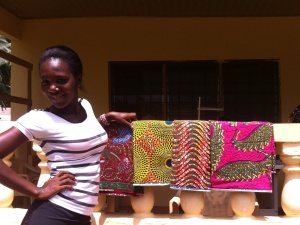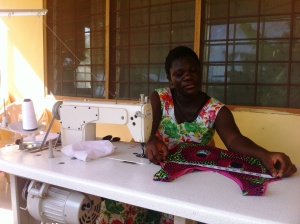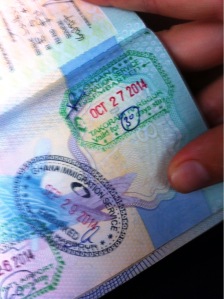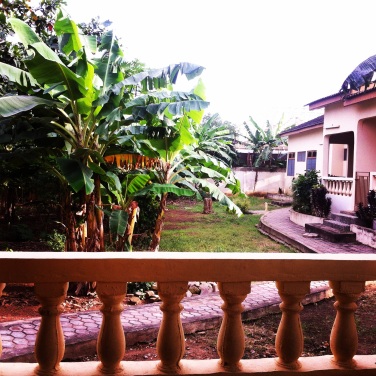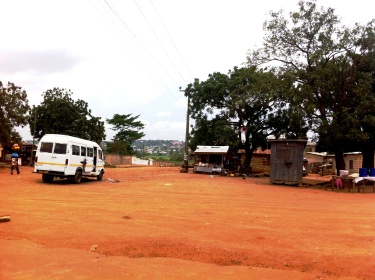One of AFAWI’s projects which I have been working on alongside Operation 100 is the Clothing Cooperative.
This project is essentially a social enterprise. In recent years, particularly following the global financial crisis, grants and awards have become more and more difficult to come by. In the past, AFAWI relied heavily on international grants, but this has proved to be an unreliable source of income, which did not enable continuity of projects. The senior management of AFAWI came together and decided that the best strategy would be to shift towards social enterprise – sources of income that are controlled by AFAWI and are ultimately more sustainable.
The AFAWI Clothing Cooperative was one such social enterprise which came out of this initiative. The idea is to utilise access to an international market – particularly through current and past volunteers – and sell Ghanaian clothing. The profit generated provides AFAWI with a constant stream of income. It also enables us to provide a generous wage to those who craft the garments.
In the long-term, if the clothing cooperative expands, there is hope that the initiative will provide a sustainable income to numerous women in Ghana. At the moment we only have one seamstress, but if the project is successful, then we can invest in more materials and equipment, and potentially a workshop.
But in order to make this happen, we need to develop our market. It’s one of those things where we can’t really gauge interest unless we mass-produce all of the various options, but we can’t mass-produce until we are sure that the items will sell.
At present, therefore, we are at a bit of a standstill. But you can help us to develop a strategy! The first thing you can do is visit our Ebay and our Etsy accounts and purchase items.
Please bear in mind however that our seamstress, Esther, is RIDICULOUSLY talented and can make pretty much anything you want, made to fit. So please rack your brains and if you think of any item which you cannot see on the website but which you would be interested in buying, let me know. You can email me with any questions or feedback or ideas at Florence@afawigh.org.
We are also looking for feedback on pricing – we want to optimise our sales and it would be so so helpful to get an idea of the market’s willingness to pay. So, even if you don’t have to cash to buy anything now, please fill out this form and share with your friends and family so that we can get a good idea of demand going forward.
Any help is hugely appreciated! And please don’t hesitate to contact me if you want something made, the fabrics available are stunning and Esther is competent at creating any style, so even if you’re curious please get in touch and help this initiative to grow!
Thanks in advance to all my trendy, socially-conscious friends – you are the target audience and your input would be greatly appreciated xxx
